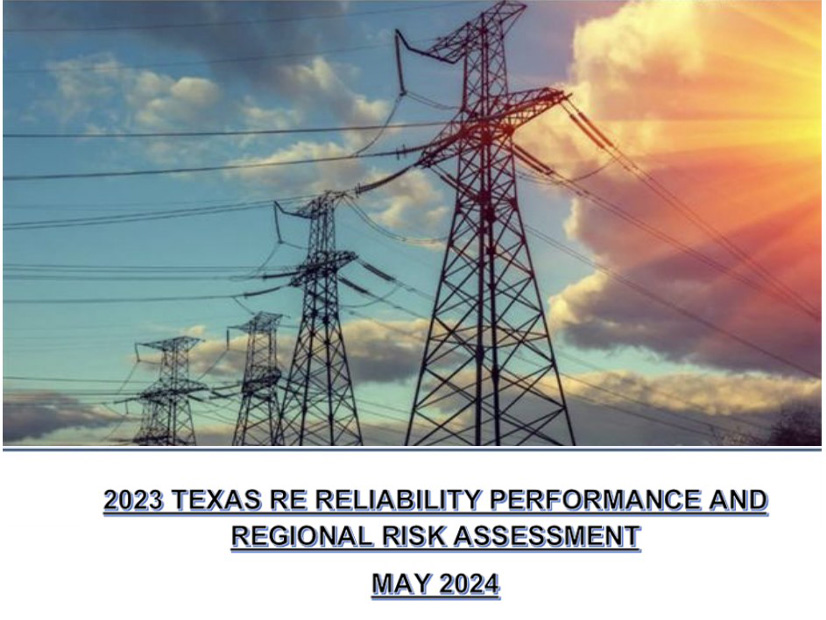The Texas Reliability Entity says its latest regional assessment indicates weatherization activities since the disastrous February 2021 winter storm have paid off.
David Penney, Texas RE’s director of reliability services, told his Board of Directors on May 15 that state legislation passed since Winter Storm Uri and on-site inspections have both improved resource performance and cold-weather resilience, as measured by outage rates and balancing contingency rates.
“We definitely see a lot of improvement with resource weatherization,” Penney said, citing the lack of outages during two more recent winter storms.
The assessment — not likely to be released until June, the entity said — also found:
-
- The solar down-ramp magnitude continues to increase, creating potential energy adequacy shortfalls.
- Misoperation rates are improving, but human performance continues to be a primary factor in both misoperations and system events.
- Conventional generation fleet outage rates have improved, but long-term outage rates continue to trend higher.
Penney said the latter problem is found mostly in coal- and lignite-fired resources.
“A lot of it has to do with the way those units are operated in light [of] how the grid is being operated because of the changing resource mix,” he said. “Those units are being cycled a whole lot more.”
Texas RE’s annual Assessment of Reliability Performance and Regional Risk Assessment is intended to inform market participants, stakeholders and policymakers of the data it gathers and the risks it sees in the interconnection. The report looks at four main areas: grid transformation, resilience to extreme events, cybersecurity, and cyber and physical security and critical infrastructure.
The report was once called the “Assessment of Reliability Performance, much to the chagrin of Texas RE CEO Jim Albright.
“‘Assessment of Reliability Performance’ was easy. ‘ARP.’ We had a nice acronym,” he said in jest, noting the report’s new acronym is ARPRRA. “Now, they’ve added ‘Regional Risk Assessment.’ That acronym gets really long, and it sounds like we’re pirates.”
Budget, Business Plan OK’d
The board approved its 2025 budget and business plan and an audit of its 2023 financial statements that reported no findings.
Texas RE proposed a 5.9% increase to the budget, from $19.11 million to $20.24 million. It said the key drivers were an 8.1% increase in payroll expense, a projected 10% increase over current actual rates for medical insurance premiums and additional compliance oversight obligations requiring more staff travel.
The budget was approved by the Members Representative Committee in April and posted for members’ comments May 7. It will now be sent to NERC.




